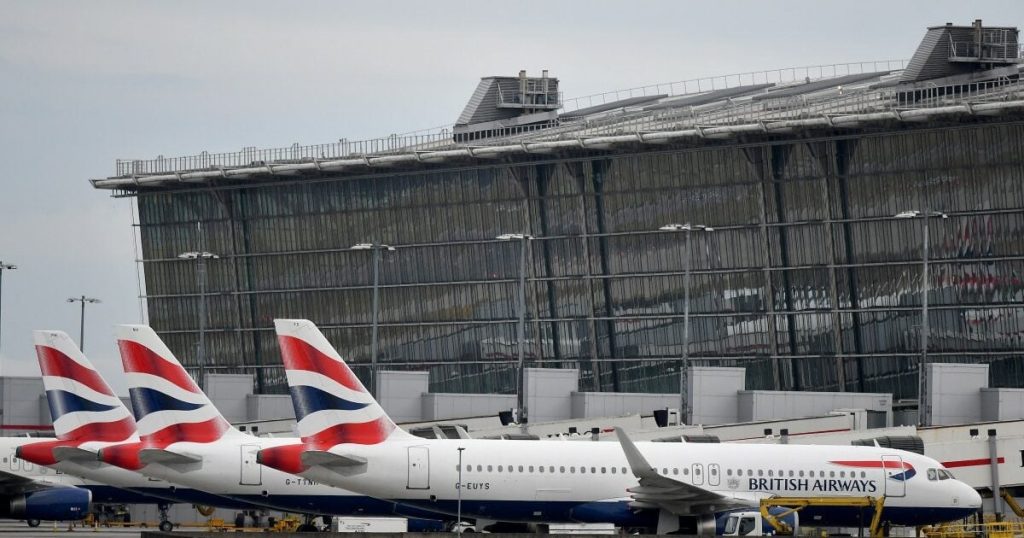The interconnected nature of modern aviation systems, while offering numerous advantages, has created a significant vulnerability to cyberattacks and technical disruptions. A recent incident involving the MUSE software, provided by Collins Aerospace, highlighted this vulnerability by impacting several major European airports, including Brussels, London Heathrow, and Berlin. The disruption primarily affected automated check-in and baggage drop systems, forcing airports to resort to manual processes, leading to flight delays, cancellations, and significant passenger inconvenience. This event underscores the growing threat cyberattacks and technical failures pose to the aviation industry and the need for robust security measures and contingency plans.
The disruption at Brussels Airport was particularly severe, with the airport reporting the cancellation of at least 10 flights and delays exceeding an hour for another 17. The airport confirmed that manual check-in and boarding procedures were implemented to mitigate the impact of the system outage. Eurocontrol, the European Organisation for the Safety of Air Navigation, requested airlines to cancel approximately half of their scheduled flights to and from Brussels Airport for a 20-hour period to manage the situation. Passengers were advised to verify their flight status before traveling to the airport. This incident exemplifies the cascading effects of a localized system failure on the broader air travel network.
While Brussels bore the brunt of the disruption, London Heathrow, Europe’s busiest airport, also experienced issues with its check-in and boarding systems, which are also provided by Collins Aerospace. Although Heathrow termed the issue a “technical problem,” the timing and similarity to the issues at Brussels suggested a connection. Berlin Airport similarly reported extended wait times at check-in due to a technical problem with a system provider operating across Europe. The commonality of the problems across multiple airports pointed to a systemic issue, rather than isolated incidents.
Collins Aerospace, the provider of the affected MUSE software, acknowledged the cyber-related disruption and stated that it was working diligently to restore full functionality to its customers. The company emphasized that the impact was limited to electronic check-in and baggage drop, and that manual operations could mitigate the disruption. Collins Aerospace, a subsidiary of RTX (formerly Raytheon), specializes in digital and data processing services for the aviation industry. This incident puts the spotlight on the crucial role technology providers play in ensuring the smooth operation of airports and the responsibility they bear in mitigating cyber risks.
This incident is not an isolated case. The aviation sector has witnessed a dramatic increase in cyberattacks in recent years, with a reported 600% surge between 2024 and 2025, according to a Thales report. This highlights the increasing attractiveness of the aviation industry as a target for cybercriminals, likely due to its critical infrastructure status and the potential for significant disruption. Past incidents, including a hack targeting Qantas airlines that compromised the data of millions of customers and a cyberattack on Japan Airlines, demonstrate the real-world impact of these threats. The Thales report underscores the vulnerability of every link in the aviation chain, from airlines and airports to navigation systems and suppliers, emphasizing the need for a comprehensive security approach.
Beyond cyberattacks, technical outages, even those unrelated to malicious activity, can significantly disrupt airport operations. A notable example is the global IT crash in July 2024, which led to widespread chaos at airports worldwide. While not a cyberattack, this incident demonstrated the fragility of interconnected systems and the potential for cascading failures. Airports were forced to halt flights or revert to manual check-in processes, resulting in long queues, frustrated travelers, and significant economic losses. These combined examples underscore the urgent need for the aviation industry to prioritize cybersecurity and invest in robust backup systems to minimize the impact of future disruptions, whether caused by malicious actors or technical malfunctions. The growing dependence on interconnected digital systems requires a proactive and comprehensive approach to safeguard the aviation sector’s critical infrastructure and ensure the smooth and secure flow of air travel.














